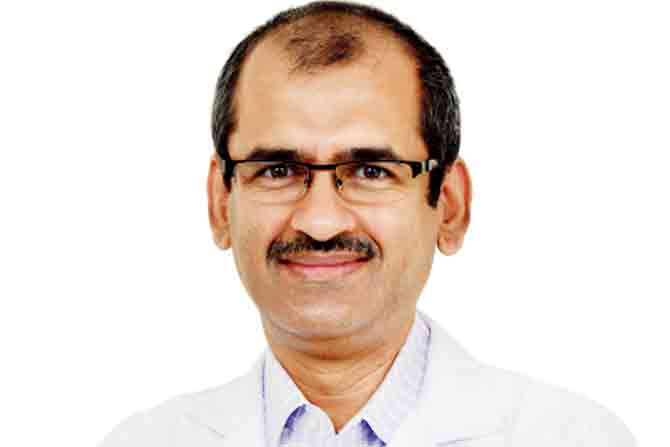Research finds a link between Vitamin D levels and better recovery from the Coronavirus infection, but can we rely on supplements?

Visitors at Crown Memorial Beach, California soak in the sun in a file photo from September. Pic/ Getty Images
In the search for better weapons in the COVID-19 battle, researchers in Spain feel that Vitamin D may help boost our chances.
ADVERTISEMENT
A team of doctors at Reina Sofía University Hospital in Córdoba, Spain, divided 76 patients into two groups. While one group of 26 got the standard treatment, the second group of 50 persons got an additional drug designed to raise Vitamin D levels in the blood. As per the report, published in Journal of Steroid Biochemistry and Molecular Biology, in the first group, half went on to the intensive care unit (ICU) as their disease worsened, and two died. In the second group, only one person ended up in the ICU, and no one died.
The Spanish researchers proposed that the activation of the Vitamin D receptors may have beneficial effects in Acute Respiratory Disorder Syndrome by decreasing the pro-inflammatory response in the body during an infection. The study says, "Recently, two ecological studies have reported inverse correlations between national estimates of Vitamin D status and the incidence and mortality of COVID-19 in European countries; lower concentrations of circulating 25 (OH) D have also been reported to be associated with susceptibility to SARS-CoV-2 infection and the severity of the evolution of COVID-19. Vitamin D deficiency is frequent in wintertime even in Southern Spain and even more so in patients requiring ICU treatment."

Dr Susheel Bindroo
Dr Susheel Bindroo, head of department of interventional pulmonology, at Jaslok Hospital and Research Centre, says as the incidences of Vitamin D deficiency rose along with an increase in diseases, researchers studied correlations between the two. "The respiratory team focused on their diseases such as tuberculosis, cystic fibrosis and even lung cancer. Several researches in the area have found that those who are Vitamin D deficient have both a higher incidence of respiratory diseases and also a greater severity of the disease." Dr Bindroo says that Vitamin D receptors alter the immunity of the body, affecting the adaptive immunity. The adaptive immune system or acquired immunity includes systemic cells and processes that fight harmful pathogens by preventing their growth.
In the immune system, Vitamin D receptors help convert the TH1 lineage cells to TH2 lineage cells, which kill the pathogen, but also save the body cells. "Earlier, when people were diagnosed with TB, they were sent to a sanatorium, where they were provided isolated rest, nutrition and a sun bath. We didn't know then, but direct sunlight, by helping the body produce Vitamin D, decreases the burden of disease in the body. It's for this reason also perhaps that some respiratory diseases such as asthma become more severe during winter, when sunlight is less."
He adds, however, that Vitamin D supplements should be taken only in consultation with the doctor after checking levels. "Also, supplements are not a substitute for natural sunlight. We should try to get at least 30 minutes of direct sunlight every day, before 6 pm and after 8 am.
Reverently, there has been rigorous discussion around how the Coronavirus infection affects the heart. And, some research also found a link between heart health and Vitamin D levels. However, Dr Atul Limaye, senior consultant, interventional cardiology at Mulund's Fortis Hospital, says that while there has been a correlation between lower levels of Vitamin D and poor cardiac health, there is no direct association between the two. "There have been several studies. However, randomised trials found that giving Vitamin D supplements to those with poor heart health, did not, in any way, improve their condition." What the studies then indicate, he says, is that those with low Vitamin D levels are possibly those who are less active and don't get enough sun exposure, making them pre-disposed to cardiac ailments. In such cases, just repleting Vitamin D doesn't improve cardiac health.

Dr Atul Limaye
He adds, "Numerous trials have been conducted on a variety of drugs to see what works and doesn't. Remdesivir does not improve mortality, but has some benefit in reducing overall hospital stay.
Hydroxychloroquine, also, trials have proven doesn't help. Neither does zinc. All that we know works for sure is steroids and here too, the timing of giving the steroids is important. It can't be too early in the course of ailment, it has to be given at the time of the cytokine storms, between day eight and 14 of COVID-19. That's the only proven medicine in randomised trials that's been known to alter the trajectory of COVID-19, not Vitamin D."
He says the trouble is that too much emphasis is laid on one aspect of the treatment. "Whether it's heart disease or COVID-19, a more holistic approach [of treatment] is needed."
Keep scrolling to read more news
Catch up on all the latest Mumbai news, crime news, current affairs, and a complete guide from food to things to do and events across Mumbai. Also download the new mid-day Android and iOS apps to get latest updates.
Mid-Day is now on Telegram. Click here to join our channel (@middayinfomedialtd) and stay updated with the latest news
 Subscribe today by clicking the link and stay updated with the latest news!" Click here!
Subscribe today by clicking the link and stay updated with the latest news!" Click here!






